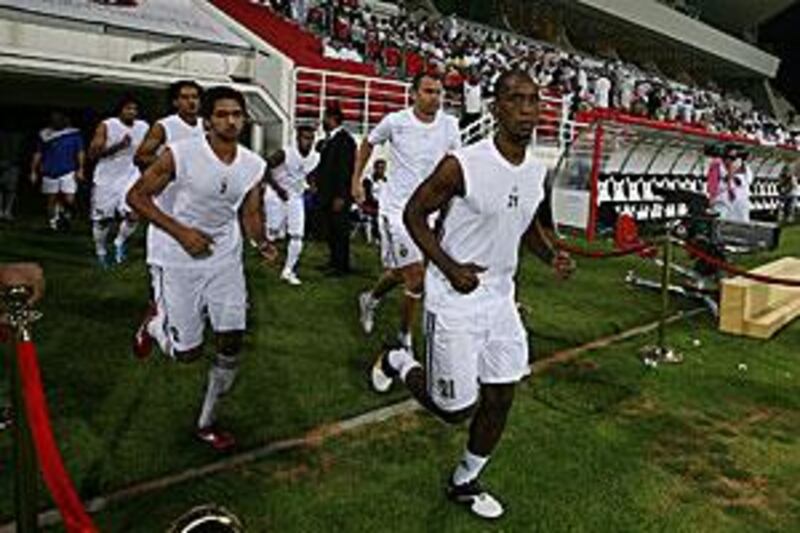ABU DHABI // Players from the Pro League are being subjected to random doping tests as the National Anti-Doping Committee (NADO) step up their campaign to ensure top level sport in the country is drugs free. The system came into effect two years ago with periodic testing carried out on athletes in selected competitions and the authorities have now stepped up the process of regular testing of all of the country's professional footballers.
Two players, selected randomly, have been tested after every Pro League game since Al Wahda's 4-1 home win over Al Shabab on Friday October 23. It takes about 20 days for test results to come back. Any player refusing the test is given an automatic two-year suspension. "We will gradually expand our operation as required by the World Anti Doping Authority (WADA) in the next few years and testing will become a routine in all sports," said Dr Ahmed al Hashmi, the head of NADO, at the A Doping Free Sport conference held at the Abu Dhabi Health and Fitness Club yesterday.
"Tests are conducted as recommended by WADA. The athletes who tested positive will face severe punishments which can be from two to four year bans for the first time, and if caught more than once a life time ban. "Athletes should be aware, under the code, they are strictly liable whenever a prohibited substance is found in them. They can not plead innocence or ignorance in what might potentially cause an inadvertent doping violation. Ignorance is not an excuse under the law."
The Football Association's president, Mohammed Khalfan al Rumaithi, welcomed the anti-doping testing, saying they are normal in every league around the world and stressed the importance of players and officials being aware of the rules. "We are playing in a professional league and we must adopt these rules sooner or later," he said. "So far we have a clean record but we must not take anything for granted. Anti-doping is an internationally recognised system in competitions.
"It is important we create awareness on the harmful effect to health and the stringent punishment for any violations of the anti-doping rule." Samples are sent to one of 35 WADA accredited laboratories, usually in Malaysia, Germany or the United Kingdom. Winfried Schaefer, the Al Ain coach, said the move will add to the reputation of the Pro League, now in its second season. "The UAE game turned professional last season and should be run professionally and this is good move," he said.
"In the more established football nations such doping tests have become a routine," added the German coach, whose side currently lie second in the table behind the leaders Al Jazira. "The players are aware of the consequences of failing a dope test and they are very careful," he said "There is less worries in the Gulf because of their strict rules on harmful drugs, but it is always better to have a system in place. When the players are better educated on such matters, they will be more careful on their medications.
"They will go to a reputed medical practitioner rather than trying to self medicate, which runs the risk of taking prohibited drugs." @Email:apassela@thenational.ae






